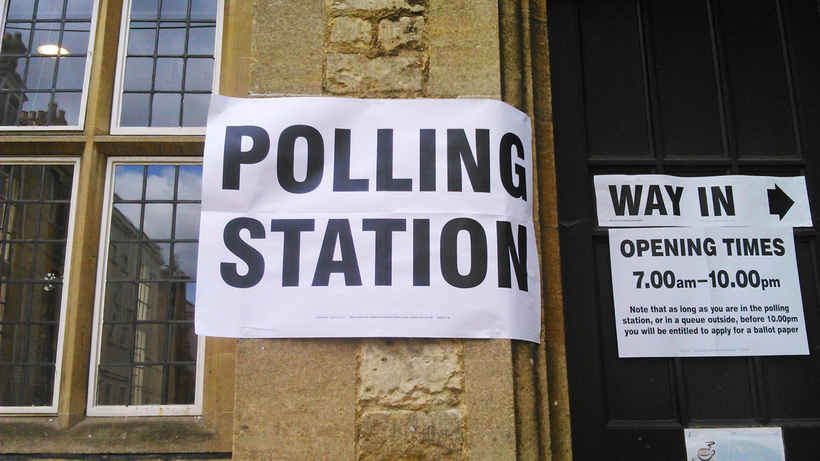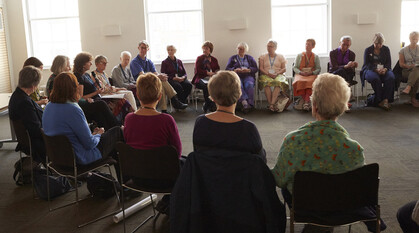Think global, act local
Changing the world starts with the local. Jessica Metheringham explores why we should care about local government and the upcoming English local elections.

Does your council pay the Living Wage? Make decisions about fracking? Support refugees? What does your council do to address inequality locally? These are all issues that Quakers care about and local councils influence how these issues are addressed.
On Thursday 3 May, many local authorities in England will have elections. In some areas, all council seats are up for election, and in others a third of councillors will be elected. These are the people that are responsible for the day-to-day running of the area where you live.
Implementing national laws
Generally, national government makes the laws, and local councils implement them. If we lobby Parliament to pass legislation to reduce homelessness or to create more houses, it's the local council that prioritises local needs and funding.
Councillors make decisions about many things including: housing, social care, education, transport, planning permission, recycling, and libraries. The council can bring empty homes back into use or create cycle lanes. They may be able to say no to fracking, invest in house building, or ensure that council staff and contractors are paid a real Living Wage.
Quakers have already been campaigning around these issues locally. Lancaster Quakers lobbied their local council to pay the Living Wage at the rate set by the Living Wage Foundation. Quakers in Sussex have been campaigning to prevent fracking in their local area. The campaign against fracking in Lancashire continues.
How to get involved
Discover where your candidates stand on these issues. If there are elections where you live, find out the name of your council ward and look up your local candidates. A list will be published on your local council website and probably in the local paper.
There may also be local hustings, often run by community groups. See if your candidates are on Twitter (and yes, some people are holding 'twustings'!) or look for them online. The local political parties will usually have information on their website. Sometimes this will include a manifesto for your local area.
Think about what you would ask if one of the candidates knocks on your door. This is your opportunity to find out directly where your candidates stand on the issues of concern to you.
Who can vote?
UK citizens can vote, as well as EU citizens, Irish citizens, and many Commonwealth citizens. In England and Wales you need to be 18 or over to vote in local government elections, while in Scotland 16- and 17-year-olds can also vote. (Only people 18 or over can vote in general elections, regardless of where in the UK you live.) You also need to live in the UK to vote in local elections.
After the elections
Civic engagement doesn't end after the election period is over. Get involved in community forums and local campaign groups. You could attend a public council meeting and see first-hand what the councillors are considering. If this isn't possible for you, you can write to your local councillors about the issues they can take action on.
Finally, if you're a Quaker standing for election how will you bring your Quaker values into play if you win? In an era of increasing polarisation, we all need to reflect on how we engage with integrity in civic debate.


